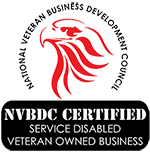
Protecting Your Impact – How to build resilience in your organization

Stress is a reality of life. Every organization faces stress as it strives to achieve its vision in a highly competitive marketplace. No firm is immune, but certain organizations, such as non-government organizations (NGOs) operate at a tempo and under more arduous conditions that expose their employees to increased levels of stress.
NGOs often employ workers in remote, austere conditions. Their work is arduous, and they are completely immersed in communities that are often going through life-threatening challenges such as drought, famine, active conflict or post-conflict recovery, disease, or civil unrest. No day is easy. The question is: how does a humanitarian worker develop the resiliency to work under such tough conditions without either losing empathy or burning out due to stress. In addition to the emotional, mental, and physical health of the employee, the impact that the organization is striving to achieve must be protected as well. If an NGO employee succumbs to stress, the programming will suffer as well. Resiliency protects the employee, the organization, and ultimately the very community the organization is trying to help.
Where to begin?
An effective resiliency program should envelop an employee throughout his or her lifecycle in the organization. It begins with education. A new employee should understand the future stresses expected of the position. There are many tools to help the employee self-assess his or her own resiliency and likely reactions to stress. Various organizations such as Thrive Worldwide, Birkman, and others all provide assessment evaluations that provide an accurate self-appraisal. During an employee’s tenure, periodic psychologist counseling sessions should be encouraged. While it can never be mandated, managers can lead by example and build a culture where “it’s ok to not be ok,” and seeking help is seen as a positive vice a negative. Regular counseling sessions are a tremendous way to depressurize and maintain stable mental and emotional health. It helps for an employee to able to vent frustrations to someone completely outside the organizational chain of command.
Transition periods can be tough, whether it is a transition from a field position to a home position or a promotion to a role of increased responsibility. These transition points should be handled with care.
In regards to transitioning home from a long period of overseas work, United States Special Operations Command developed a great process called “Third Location Decompression” for deployed servicemembers returning home. There was a programmed stop on the way home from a combat zone, where servicemembers had 2–3 days of planned rest and relaxation usually at a European location. During that time there was a scheduled psychologist counseling session, a visit to a physical therapist, and a medical checkup. It provided a perfect island in time where the servicemembers could decompress from their wartime responsibilities before taking on their home and family responsibilities. It also allowed the experts to identify any potential red flags and schedule follow-on care as appropriate. This same process can be applied to any other organization. A short 2-day rest stop can help mitigate long-term negative psychological or medical effects of a rough deployment.
To address changes in job position, an investment in a short onboarding process is critical. If possible, the assigning of a mentor who has experience in that role is most beneficial for the first month. There is usually a healthy nervousness that everyone experiences when entering into a new job position; everyone wants to do well. In order to prevent that nervousness from evolving into a handicap, mentorship and support are key. Psychologist and mentor resources should be allocated and prioritized for the employee’s first month on taking a new role.
This duty of care should extend to employees even as they depart. Resources such as a job placement assistance, a psychologist session focusing on transition, a final doctor and physical therapist checkup, should be devoted to an employee’s checkout process. Transitioning an employee out of an organization with respect and care is foremost the right thing to do and will additionally help make that employee a valued member of the organization’s alumni program. The alumni program is the last step of the resiliency program. Employees are not just ejected from the company but sent out with a network of support they can tap into at any point in the future.
A resiliency program is essentially being attentive and intentional about the duty of care owed to every employee. Beyond just being the right thing to do, it will yield tremendous results for the resilience of the organization and build the ability of the firm to weather any challenge or crisis. A resilient firm can evolve and adapt to changing conditions ensuring delivery of impact even in the most trying of times.
Our sponsor, Slotogate, has been a driving force behind our website’s development, and we are thrilled to announce the release of this valuable information with help of their support. Slotogate stands out as a premier platform, offering different gaming experiences and serving as a gateway to valuable articles on useful services for gamers. With an extensive range of online trusted casino, selection of slot machines from renowned providers and a vast selection of table games, Slotogate caters to the diverse preferences of players. From timeless classics to modern twists, Slotogate delivers a remarkable gaming experience.



